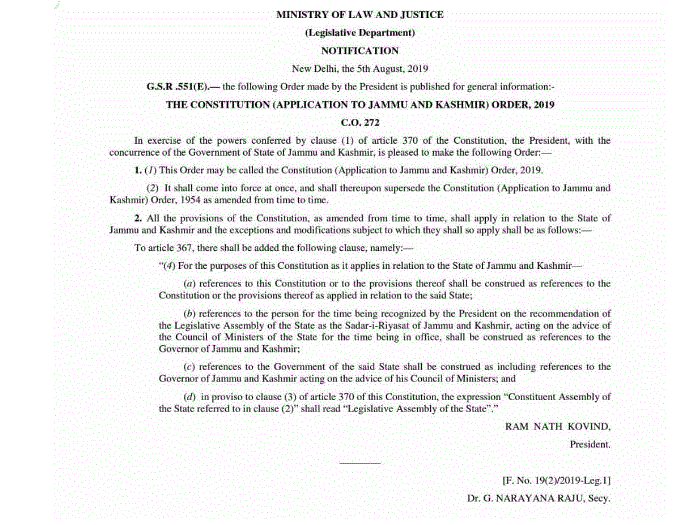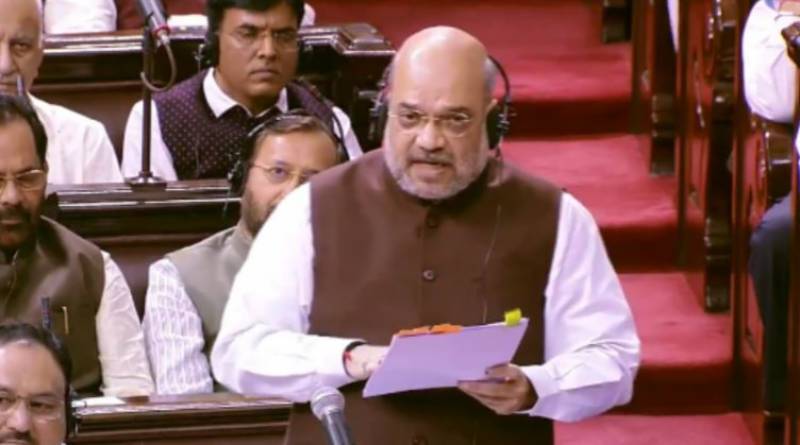New Delhi (Web Desk): Narendra Modi-led BJP regime on Monday revoked Article 370 of the Constitution of India, which grants special status to Indian held Kashmir.
President Ram Nath Kovind signed this notification after India’s Home Minister Amit Shah formally proposed revoking the article which gave J&K autonomy over its affairs, except in foreign affairs, defence, and communication.
The development allows anyone from India to buy land in the disputed Muslim-majority region and comes into effect immediately.
If the special status is repealed, people from the rest of India would have the right to acquire property in occupied Kashmir and settle there permanently. Kashmiris fear this would lead to a demographic transformation of region from majority Muslim to majority Hindu.

What is Article 370?
The Indian government on Monday tabled a resolution which would revoke Article 370 of the constitution.
Article 370 of the Indian Constitution is a 'temporary provision' which grants special autonomous status to occupied Kashmir. All the provisions of the Indian constitution which are applicable to other states are not applicable to occupied Kashmir.
According to this article, except for defence, foreign affairs, finance and communications, the Indian Parliament needs the state government's concurrence for applying all other laws. The residents of occupied Kashmir, therefore, live under a separate set of laws as compared to Indian citizens elsewhere in the country, including those related to citizenship, ownership of property, and fundamental rights.
As a result, Indian citizens from other states cannot purchase land or property in occupied Kashmir.


